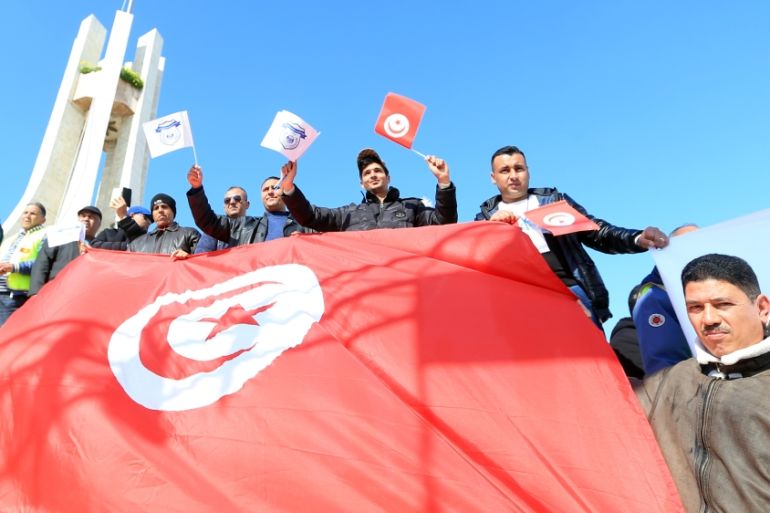Tunisia to hold national elections in October and November
Legislative polls will be held on October 6 and the presidential vote begins November 10, says the electoral commission.

Tunisia will hold its parliamentary election on October 6 and a presidential vote starting on November 10, the country’s electoral commission has said.
This year’s elections will be the third round of national voting since Tunisia’s 2011 revolution toppled longtime leader, Zine El Abidine Ben Ali.
“Parliamentary elections will be on October 6 and the first presidential round will be on November 10,” said Nabil Bafoun, president of the independent electoral committee ISIE, on Wednesday.
The parliamentary race is expected to be a close fight between the moderate Islamist Ennahdha party, the more secular Tahya Tounes party of Prime Minister Youssef Chahed, and the Nidaa Tounes party led by Hafedh Caid Essebsi, the current president’s son.
The three parties rule the North African country together, but their coalition has been hit by infighting that has hampered decision-making and slowed economic reforms demanded by foreign donors.
No leader has yet declared their candidacy for presidency.
If a presidential candidate does not win outright in the first round, a second round will follow within two weeks, the commission said.
Previous polls held in 2014 brought to power Beji Caid Essebsi, the country’s first democratically elected president.
Tunisia is widely seen as the sole democratic success story of the 2010-2011 Arab Spring uprisings but has struggled with an economic slowdown and public unrest.
The slow progress on reforms has been criticised by lenders such as the International Monetary Fund which have helped keep the country afloat.
In December, several Tunisian areas were hit by violent protests after a photojournalist burned himself to death in the western city of Kasserine to protest poor living conditions in the country.
The incident was reminiscent of one eight years ago when street vendor Mohamed Bouaziz set himself on fire and sparked the Arab Spring uprisings that toppled several Arab leaders.
In November and January, thousands of Tunisian workers staged nationwide walkouts to demand higher pay.
In February, Tunisia’s government reached an agreement with the influential General Labour Union (UGTT) on wage increases, thereby averting a planned nationwide strike.